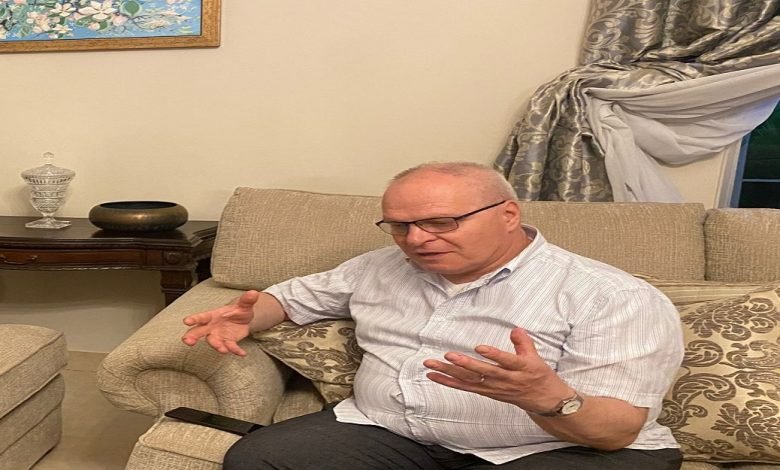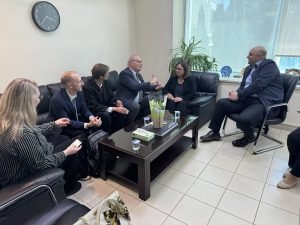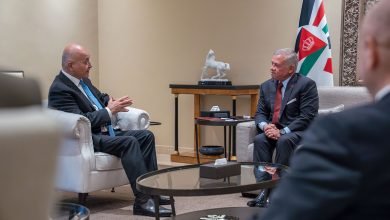
By : Nedal Zubeidi
Jordan Daily – Dr. František Ondráš, Associate Professor of Arabic Studies in the Department of Middle Eastern Studies at Charles University in Prague, is playing a key role in strengthening academic and cultural ties between the Arab world and Central Europe through teaching, translation, and international cooperation.
Specializing in modern Arabic literature and literary criticism, Dr. Ondráš teaches both Modern Standard Arabic and Egyptian colloquial Arabic at the Faculty of Arts in Prague. “We teach both formal Arabic and several dialects so that students can navigate the Arab world with ease and engage directly with people,” he said in an interview with Jordan Daily in Amman during his visit to the Kingdom.
Ondráš began studying Arabic after completing high school, enrolling at Charles University, where he studied Arabic language, history, and culture. “Learning the language alone is not enough. Students must also understand the history, culture, and civilization of the Arab world,” he explained.
After graduating, he taught Czech language and literature at Ain Shams University in Cairo in the early 1990s, during the wave of political transformations that swept through Eastern Europe. He spent six years in Egypt before returning to Prague to teach Arabic language, literature, and culture.
“I’ve loved literature since childhood,” he said, adding that early exposure to Arabic works translated into Czech inspired his decision to pursue Arabic studies.
Arabic language studies continue to attract Czech students due to the Arab world’s geographic proximity and cultural relevance. “We accept around 20 students each year into the Arabic program—sometimes none—but the Department of Middle Eastern Studies has 60 students studying Arabic, Turkish, Persian, and Hebrew,” Ondráš noted.
During his fourth visit to Jordan, made at the invitation of the University of Jordan, Ondráš emphasized the importance of academic exchange. “Our faculty is working on developing international cooperation with Arab universities. We are very keen to send our students abroad so they can master the language and immerse themselves in Arab culture,” he said.
The cooperation is reciprocal, with Arab students and professors welcomed in Prague. He confirmed that the University of Jordan and Charles University have agreed to collaborate on academic research, particularly on comparative studies of Jordanian Arabic novels from both Czech and Arab perspectives.

He also visited Yarmouk University, describing the visit as “successful.” His lecture at the University of Jordan, titled “The Genius of Place in the Modern Arabic and Czech Novel,” explored how setting shapes narrative in both traditions. “I chose two contemporary novels—Arabic and Czech—and discussed literary elements such as the home, which is essential in Arabic novels, and the sea, particularly in Palestinian fiction. In Czech literature, it’s the forest,” he explained.
As a literary critic and translator, Ondráš has translated significant works such as Maqamat Badi’ al-Zaman al-Hamadhani into Czech, a task that took several years. He has also authored books on the Arab literary renaissance and the origins of the Arabic novel, and written articles on women’s literature. In addition to academic work, he has long served as an interpreter for Czech official delegations visiting Arab countries.
Reflecting on his first visit to Jordan in 2004, Ondráš noted the country’s transformation and the many friendships he has since developed with Jordanian writers and intellectuals. “In recent years, I’ve had the honor of serving on the judging panel for the International Prize for Arabic Fiction (Arabic Booker),” he said. “Last year, I helped select the best Arabic novel of 2024, which gave me an excellent opportunity to engage closely with Arab authors and their works.”

